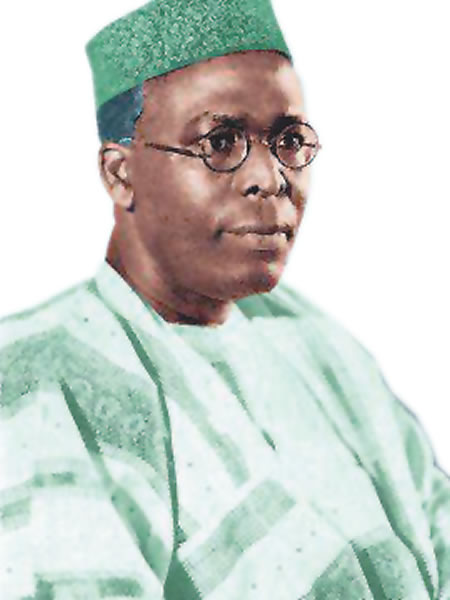The occasion was the 20th Annual Conference of Chartered Institute of Taxation of Nigeria (CITN) where Osinbajo recalled that “the six-year period of the Awolowo government is often cited as one of the most progressive of any government in the developing world.
“Some of the major accomplishments include the University of Ife (now Obafemi Awolowo University), the 26 Storey Cocoa House, Ibadan – an architectural wonder at the time, Western Nigeria Television, WNTV (first of its kind in Africa), the Ikeja industrial estate, several farm settlements, Airport Hotel, Ikeja, as well as several industrial establishments, including Oodua Textile Industries, Ado Ekiti, Okitipupa Oil Palm Mills, Oluwa Glass, Ifon Ceramics, and Ire Ekiti Brick Industry, a network of roads across the region.
“But by far the most significant of these achievements is the Free Universal Primary Education.
“In 1952 when the scheme was proposed, 381,000 children (about 30%) were enrolled in school. By 1955 when the scheme took off 811,432 children were enrolled. And the numbers continued to grow.
“The Government devoted as much as 41.2% of its 1958/59 recurrent budget to Education, one of the highest in the world at the time.
“The Western region of Nigeria, at that time, was educating more children than anywhere in Africa.
“At the same time, the region nurtured a vibrant civil service and judicial system, which is widely acknowledged as a model, even today.
“So how were Awo’s phenomenal achievements possible? There was no oil revenue and no federal revenue.”
According to him, the Sage was able to accomplish all these mostly through taxes and revenues from agriculture, especially Cocoa.
“Free education which was audaciously launched by the Awolowo Government was directly on the back of income taxes.
“A capitation or poll tax was imposed by the Western Regional Government mainly to fund free education, despite much opposition and protests at the time.”
The Vice President who blamed the military for jettisoning the tax culture said it is therefore not hard to explain the cynicism that Nigerians display about governance and about fulfilling their tax responsibilities.
“Governments generally have been nonchalant about fulfilling their own part of the social contract.
“But it is also a fact, that when people pay taxes they are more inclined to hold their governments to account.”
Since coming in 2015, Osinbajo said the administration has worked assiduously to change this state of affairs and was determined to restore the full weight of the social contract.
This is why, in February 2016, the Federal Executive Council adopted the National Tax Policy, and the establishment of an Implementation Committee for the Policy.
ALSO READ: At Awo Conversations, youths told to rescue Nigeria
He noted that the committee’s work has since produced five amendment bills and two Executive Orders; all of which will shortly be presented to the Federal Executive Council for approval.
“We must not hold the ordinary citizen to account for tax payments while allowing the powerful multinationals to capitalize on their size and smarts to slip away without scrutiny.
“We are also determined to ensure that no one is left at the mercy of unfair tax regimes.
“To this end, we have extended the reach of our Double Taxation Avoidance Agreements.
“There is no doubt that much has been achieved by our unprecedented push to rewrite the tax narrative in Nigeria, to ensure that everyone, citizens, businesses, investors, tax professionals, governments, all derive maximum benefit from the system.”
The Vice President also disclosed that from the 14 million economically-active Nigerians who paid taxes in May 2017, the figure was now in excess of 19 million, and still growing.
Earlier, President of CITN, Chief Cyril Ikemefuna Ede, FCTI in a keynote address had disclosed that the conference’ theme Institutionalizing taxpaying culture in a developing economy was carefully chosen after a deep inquisition as to contemporary issues that should be occupying the burner of taxation in our nation’s fiscal space.
He said sub-themes like Economic Recovery and Growth Plan (ERGP), Voluntary Assets and Income Declaration Scheme (VAIDS) and Stakeholders’ Expectations: Matters Arising Transfer Pricing and Global Trends: BEPS Implementation and the journey so far; the tenets of Taxation and Implications for Nigeria’s Revised National Tax Policy and; arbitrary Tax Incentives as a Disincentive to Nation Building will also be discussed during the three-day conference.




